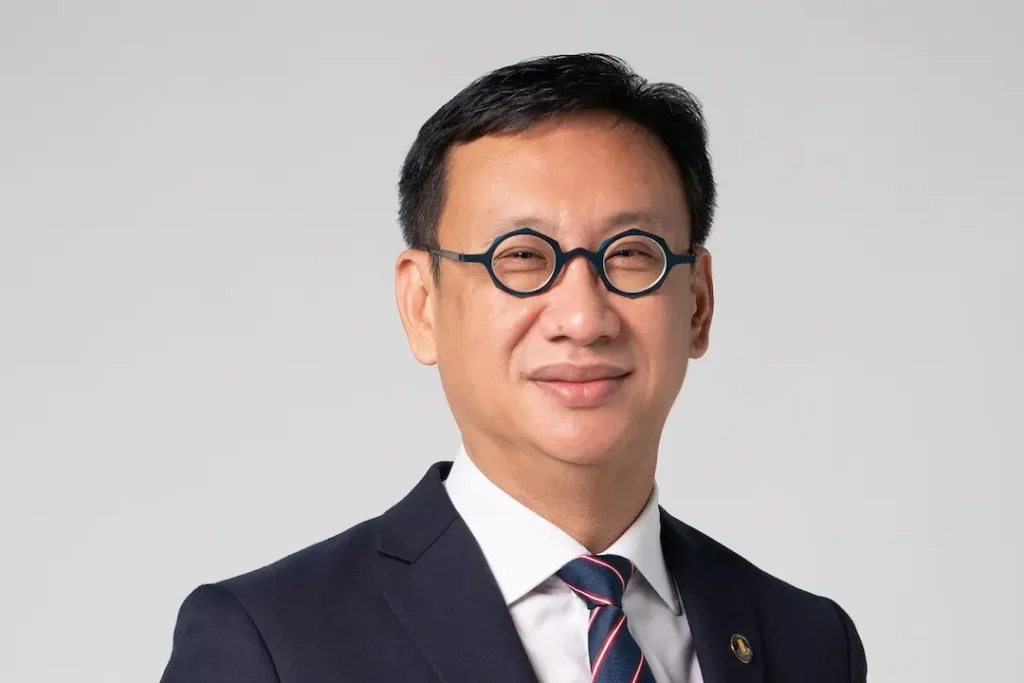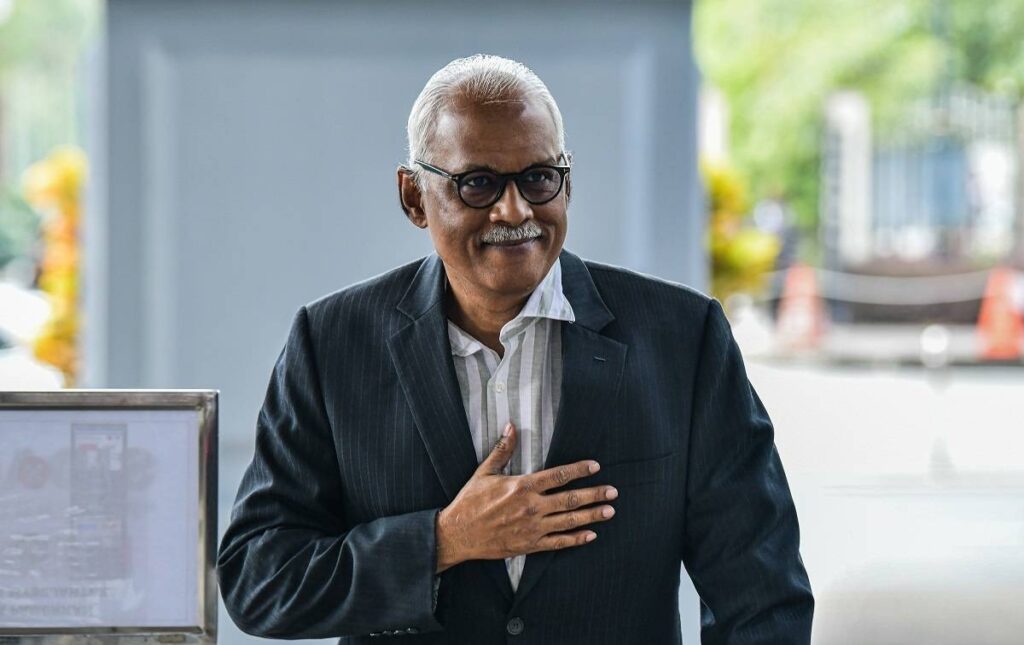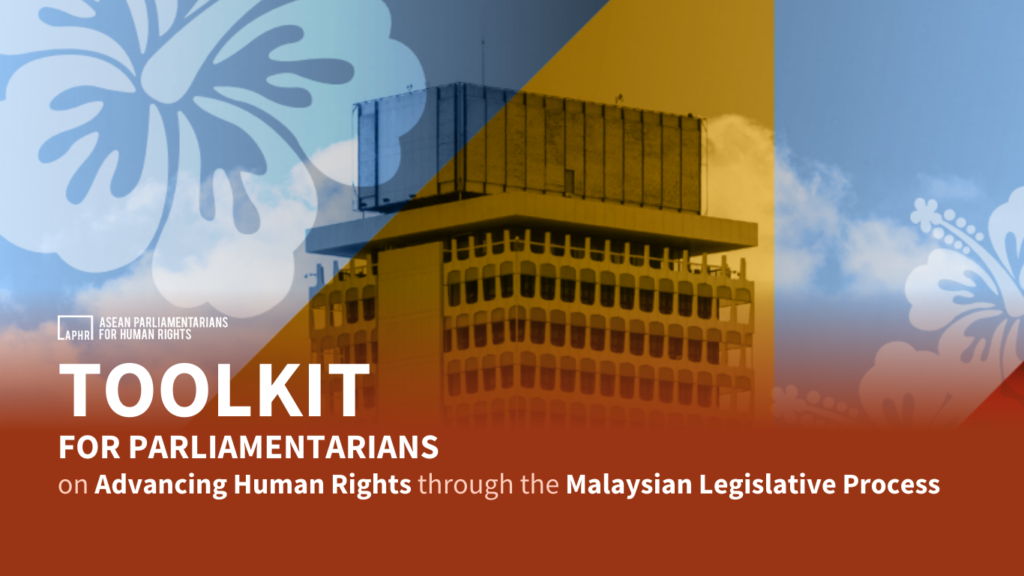
ADVOCATE: Inside the Parliament of Malaysia with Wong Chen
April 08, 2024
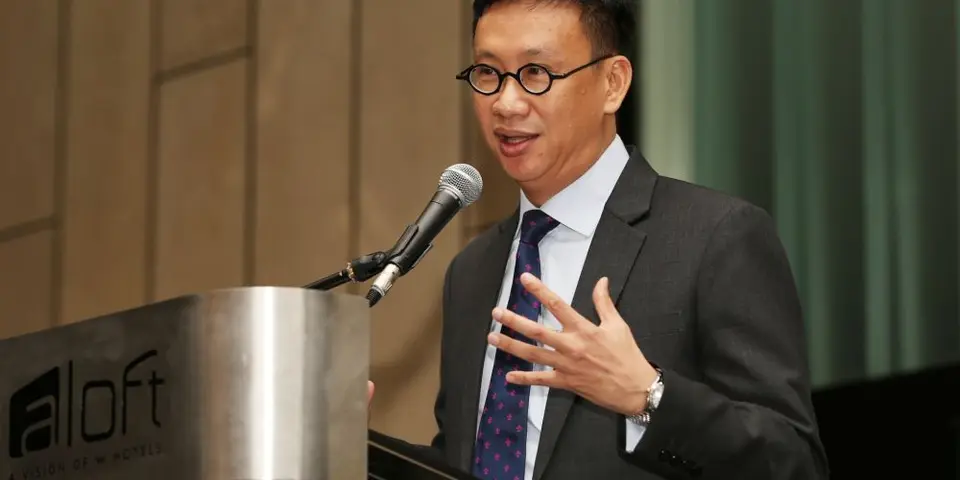
INTRODUCTION
You’re now listening to “Advocate” by APHR, ASEAN Parliamentarians for Human Rights. APHR is a network of current and former parliamentarians from Southeast Asia who use their unique position to advance human rights and democracy in the region.
Hello, I’m Karina Tehusijarana, Media Manager of APHR. I’ll be your host for today and today we’ll be talking with APHR Board Member and Malaysian Member of Parliament Wong Chen.
Hi Karina, thank you for inviting me.
YB Wong Chen is a Malaysian politician and lawyer who has served Non-executive Chairman of the Malaysia Debt Ventures Berhad (MDV) since May 2023, Chairman of the International Relations and Trade Parliamentary Select Committee from December 2019 to May 2020 and again since May 2023 as well as the Member of Parliament (MP) for Subang since May 2018
Today we will talk about the APHR Toolkit for Malaysian Legislative Process, what’s inside the Malaysia parliament, the role of Malaysia’s MPs and Southeast Asian’s MPs.
INTERVIEW
The Prologue
So now, YB, before we go any further into discussion, can you maybe introduce a little bit about your background and how you first entered politics, and what interested you about APHR?
Okay, thank you, Karina. I joined politics around 2009. Prior to that, I was a corporate lawyer doing a lot of mergers and acquisition and also IT law. So basically, I did a lot of work merging IT companies. But I also dealt with a few family offices where the companies want to sell off their businesses because there’s no transition from the older generation to the next generation. I did that for about 22 years.
But I come from a family of business people as well. So it was a natural progression into it. But as a young student, I was always involved in human rights and environmental issues. So it seemed like a natural progression. When I reached the age around 40 years old, I decided that I will take a break from the corporate world and join politics instead.
Joined the Parliament and APHR
That’s a very interesting career progression. After you joined Parliament, how did you first hear about APHR and what made you interested in joining APHR?
I joined Parliament after winning my first seat, which is called Kelana Jaya in 2013. I come from the Parti Keadilan Rakyat, Dato’ Seri Anwar Ibrahim’s Party. Our party is very closely linked to the DAP, which is the Democratic Action Party in Malaysia. We are the coalition on, back then called Pakatan Rakyat, right? Yeah. Now it’s called Pakatan Harapan.
And one of the key leaders in the DAP is YB Charles Santiago. It became very close to me because we have both interests in human rights issues, something that I’ve been looking into since high school and also university level. So it was like 20 plus years ago. So when I met Charles, Charles asked me to join APHR. So I think I would have joined APHR somewhere between 2015 or 2014. And since then, I’ve been involved continuously every year. So it’s almost more than a decade now.
The Role of APHR’s Board
As you said, you’ve joined APHR since 2015, but more recently, you’ve become a member of APHR’s board. Can you speak a little bit about your role on APHR’s board and as well as what APHR has been doing in Malaysia?
So the APHR board is essentially because YB Charles Santiago did not contest again in the last election. So to be the so-called chairman of the Malaysia chapter, the person has to be a member of parliament. So YB Charles asked whether I would take up the position. I reluctantly said yes, but my heart is with it. But I have so many chairmanships in Malaysia at the moment. It’s incredible. But I’m very happy to join the board since I know many are the board members.
So what we’re doing differently or not really different because Charles is still at the APHR’s peak level as a Co-Chair. What we’re doing is continuing his work, mostly. But we’re also trying to produce a different direction because when I joined APHR, and I remember this very well, I came in with a more like corporate angle about corporations, how to do things differently, not purely from the NGO point of view.
I’m quite happy to introduce some level of pragmatism, I think, and also some understanding in how the world organizes itself in terms of corporations and the fact that we can, if we are trying to understand them, we can try to nudge them to be more and better citizens in terms of human rights.
So what we’re doing, specifically in Malaysia, is we did the Freedom of Religion issue recently. We also helped on advancing a toolkit for parliamentarians on the legislative process. So I think those are the two last, most recent projects that we’ve been doing.
Malaysian Legislative Process
You mentioned the toolkit about the Malaysian legislative process, which APHR just launched last year, late last year, I think in December. In that toolkit, inside the toolkit, it contains research to better understand and unpack the legislative process and also how to help both CSOs and parliamentarians to work together to advance human rights through the legislative process. Can you explain a bit about how Malaysia’s legislative system works and how the bill becomes Allah, essentially family in Malaysia?
The lawmaking process in Malaysia is quite basic because we essentially follow the Westminster UK model. So say when the country has an issue to deal with and a law is required. So the process starts off with engaging stakeholders. Then the government will start to draft a version, and then it is tabled in parliament, and then the vote happens at the policy level, and then the vote happens again at the committee stage level, and then it passes the law at the lower house.
Then it goes up to the upper house, which is really more a process of, I wouldn’t say rubber stamping, but they’re not elected, right? So the members of the Senate will give their comment. They can’t really stop the process, but they can comment on that. So that’s how the lawmaking is done in Malaysia. But it is not ideal Malaysia doesn’t have a history of using it, as using the committees to look into the committee stage of the debate is done at a very superficial level in parliament itself, not sent to the committees.
So there are a lot of problems with the lawmaking process in Malaysia. This is a result of the long rule of Dr. Mahathir for 22 years, where the fundamental system of parliament was removed to bolster a somewhat authoritarian position, and the parliament was essentially converted into some form of rubber stamp under his rule. So we’re trying to unpack all these things.
This government, Government of Dato Seri Anwar Ibrahim,
is committed to passing the Parliamentary Services Act
to finally empower parliament with budget and administrative authority
to separate itself from the control of the Prime Minister’s office
and thus allowing a better form of democracy,
therefore a better form of lawmaking.
So it’s a process that we’re going through. We’ve been looking at the Parliamentary Services Act for the last three years or so. We are hoping that by June, July, in this coming sitting, that we will be able to get this passed. It will be ground-breaking. And that, in essence, if we can get the fundamental basis of this done, then it will also translate to laws regarding human rights, laws regarding transparency, anti-corruption. So it’s a whole pack of stuff. So one of the beneficiaries of this new law that we’re pushing very hard for is, of course, the human rights sector.
Could you maybe elaborate a bit? Because I’m interested in what you said about how the committee’s stage is very superficial. So is it that the committee doesn’t actually deliberate on the particular bills?
No, they do deliberate. But it’s done in a superficial way. So it’s at the level where the speaker reads out Article 1 to 10, any comments? You get up and you say, Yeah, I disagree, right? And then they vote on it straight away. So it’s not even a considered position. This is done as a superficial version because there are no committees in Malaysia.
Like, Karina, you’re in Indonesia. In Indonesia, you have your Komisi. So the Komisi, you know, Malaysia’s Komisi is way behind you. It doesn’t have a budget, it doesn’t have enough workers, it doesn’t have researchers, it doesn’t have buildings, it doesn’t have nothing. We’re trying to rebuild the system of parliamentary democracy using the foundation of a independent, strong committee system. And in order to do that, to give it real meaning, we have to pass the Law called Parliamentary Services Act, which was available in Malaysia at Independence, which Mahathir then, Dr. Mahathir, removed and repealed.
So now we are trying to reinstate that. You know, there are many things wrong in Malaysian parliament, the culture needs to change. For instance, under the current model, all the officers in the Malaysian parliament are technically appointed by the Prime Minister’s office. So their boss is not parliamentarians, their boss is the Prime Minister’s office.
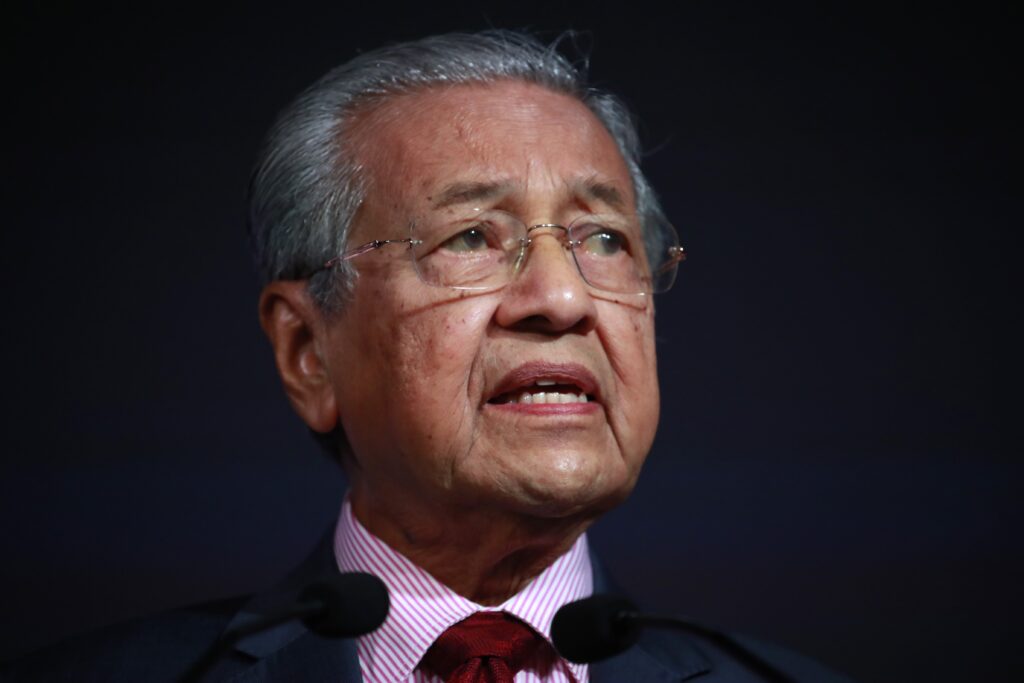
So that is fundamentally wrong. Our budget, there is no budget, the budget is lacking. We’ve been asking for a better budget for the committees to run. And that’s still a process. So by passing the Parliamentary Services Act we hope to establish an independent civil service that works for parliamentarians, not reporting to the Prime Minister. We hope to also get money, better funding, so then we can run a professional committee system.
So all this will take a transition around 3-5 years, but the very start is to empower us to enhance separation of power between the executive, control over parliament, and also the judiciary. So all these needs to be done. So we are all very excited about the reform, but at the same time many people are not very happy because the reform pace is very slow.
I think, like Indonesia, your parliamentary system is much more advanced because you had your Reformasi moment in the late 1990s. We have to wait for so long for this Reformasi to take place, and technically the Reformasi really took place only last year.
Overall, we need time. I think in Southeast Asia we have this idea that we have to do things a bit slower, evolution rather than revolution. So we’re just hoping that we have enough momentum and the government actually promises this reform and carries it out in the next 2 years.
Entry Point for Advocacy
The Parliamentary Services Act that you mentioned sounds like it is very needed and very important. But given the current model, what do you think is the most effective entry point for CSOs or advocates who want to advocate for certain law revision, to include certain things in a particular bill, at what point under the current model do you think it’s most effective?
Under the current model, I think the members of parliament themselves do not have adequate resources to function. We can provide input and our opinions. But to assist us at that front, so that the laws are clearer on what we want to get out of it, so that the committees then are armed with the reforms in writing, in proper planned out documentation, then we can push the government, the Attorney General’s office, the Law Minister, to discuss the demands that we want to see.
Ideally, they should just tell us we have problem A, and then we’ll go around to find Solution B, C, and D, and then you’ll do all the research and then approach them, but we don’t have the resources for that now. So the best way for CSOs to engage with us, the parliamentarians that want to see reform, is to assist us resource-wise, legal-wise, to help us cause we have so many things to do as well cause as parliamentarians we are so busy.
Current Advocacy
Right now you’re the MP for Subang, you mentioned of course the Parliamentary Services Act. Is there any particular issue that you’re currently advocating for as an MP?
Now what we’re trying to do is not just to talk about reform, sometimes reforms are beyond our control. So we have to push our own government to reform the things that we promised my constituents. My constituents are largely middle and upper middle class people, so there are lawyers, engineers, doctors, they are all very concerned about all these current issues.
What I do is I will try my best to remind my own government that we have to deliver things. But at the constituency level we do our basic political work, attending to the poor, providing a budget for school repairs, and attending a lot of functions. What we do and we’ve been doing this for the last 12 years, you can’t just talk about anti-corruption or transparency, you really have to do it.
So I think we’re very proud of the fact that we have this system in my place, in my office, where we constantly engage our residents, and they know where the taxpayer money is going and how we are spending it. I think that’s what we’re doing generally in my constituency.
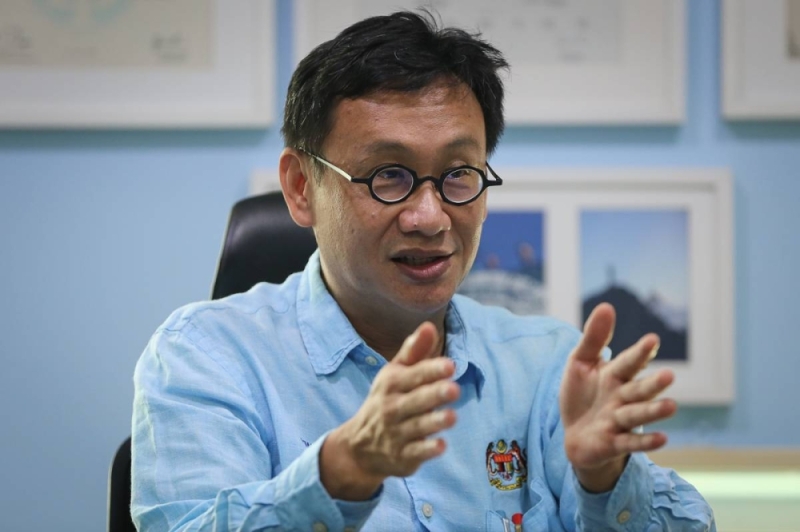
Civic Participation in Malaysia
Very interesting on how you managed to include your constituents in the decision making process in the parliament and make sure that they are up to date. I was wondering, what do you think in general like outside of your constituency, how good do you think the civic participation is in Malaysia, in terms of do people know what’s going on in parliament?
I would say, this is mostly in the realm of the intellectual class and the middle class people, so I would say around, maybe, those who are really pushing for reform maybe around 10-20% at most, and those who are concerned about corruption and the economy probably the rest of the 80%. Malaysians don’t tend to be fully engaged in issues such as human rights or environmental rights. So it’s really up to the members of parliament who are interested in this sector to keep pushing for it.
Sometimes I do get notes from my constituents saying “Why are you fighting on this human rights issue, the economic issue is more important, the price of eggs and chicken is more important to me than the human rights issue.” There is always the constant need to inform our constituents and educate them, you must have a clean bill of human rights in order to export your goods.
Relationship between CSOs, Parliament, and the Government
What about, I know that Malaysia has quite a few active civil society organizations who have also participated at times in the legislative process. I was wondering, how do you view the relationship currently between CSOs, parliament, and the government?
The government is supposed to be a reform government, so the CSOs have a lot of high hopes going into this particular period of reform in the country. But they also don’t understand that this is not really a full reform government, this is essentially a unity government, they need to understand a bit more that this is much more complicated than just a black and white issue.
To me, my role is to communicate this back and forth between the government and the CSOs, and ask them to organize themselves better but not to be too demanding. Because, if you want to have a whole set of reforms, we can’t get our partners to agree to it, so then it’s going to be very contentious.
What we need to adopt for Malaysia is an evolving organic law making process.
So maybe you can settle for 50% on the reform you want. Then once the law is passed we create the culture to move another level up to 70%, then maybe three years down the line to 100%. But it has to be based on feedback, as you know, the current government is made of many political parties. They are not all Pakatan Harapan. In fact, we don’t have a majority at the Pakatan Harapan level. So we do need our partners who have no reform agenda to form a government. So the CSOs need to understand this is the real political situation that’s happening.
The Role of MPs in Regional Solidarity
Thank you for giving us that overview about the situation in Malaysia and how CSOs can also work together with parliamentarians to advance human rights. As you know, APHR was formed with the idea of creating regional solidarity among parliamentarians across the southeast asian region. How do you think that southeast asian MP’s can help create positive change in the human rights situation of Malaysia and as well as other countries? And what kind of regional solidarity do you think can be initiated?
The most important thing, for Malaysia at least, is to sort out our internal issues first and give us a foundation for human rights to thrive and to expand in Malaysia. Assuming that we get the reform agenda on for the next, say, one or two more years, then Malaysia will be in a position in 2025 as chairman of ASEAN to try and bring this idea of an ASEAN type of democracy that respects human rights because so many ASEAN countries are not fully democratic and does not really respect human rights. But we need an approach that they can understand.
I’m not advocating compromising anything, but I’m advocating evolution and using Malaysia, Indonesia to some extent, Philippines and Thailand and Singapore as a foundation to create this sense of human rights and make sure these human rights are interlinked into international trade, into standards, into economic rights as well. I think that is so important for the ASEAN experiment, so to speak, to promote human rights.
Thank you very much, YB Wong Chen and thank you for joining us today in this episode of ADVOCATE.
CLOSING
That was an episode of ADVOCATE by APHR, ASEAN Parliamentarians for Human Rights. Drop your ideas for any podcast topics or any interview subjects for this podcast through [email protected] that’s [email protected] and also let us know what your thoughts are on this episode. Before we sign off, I would like to thank you for your support and thanks for tuning in. I’m Karina Tehusijarana. See you soon.
ASEAN Parliamentarians for Human Rights (APHR) was founded in June 2013 with the objective of promoting democracy and human rights across Southeast Asia. Our founding members include many of the region's most progressive Members of Parliament (MPs), with a proven track record of human rights advocacy work.
